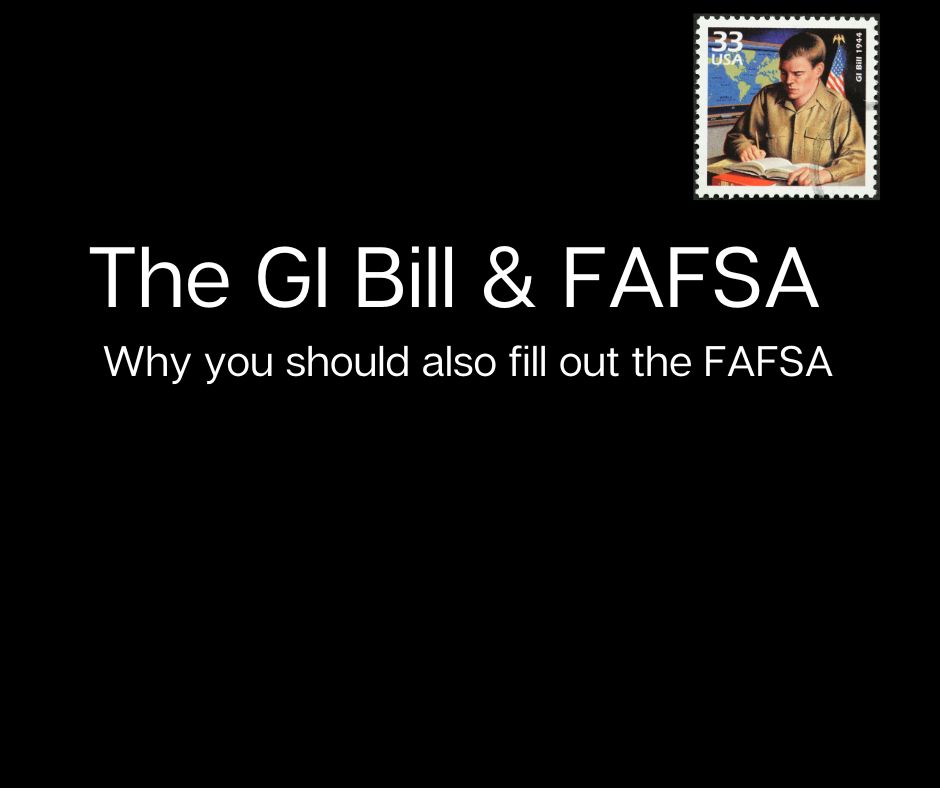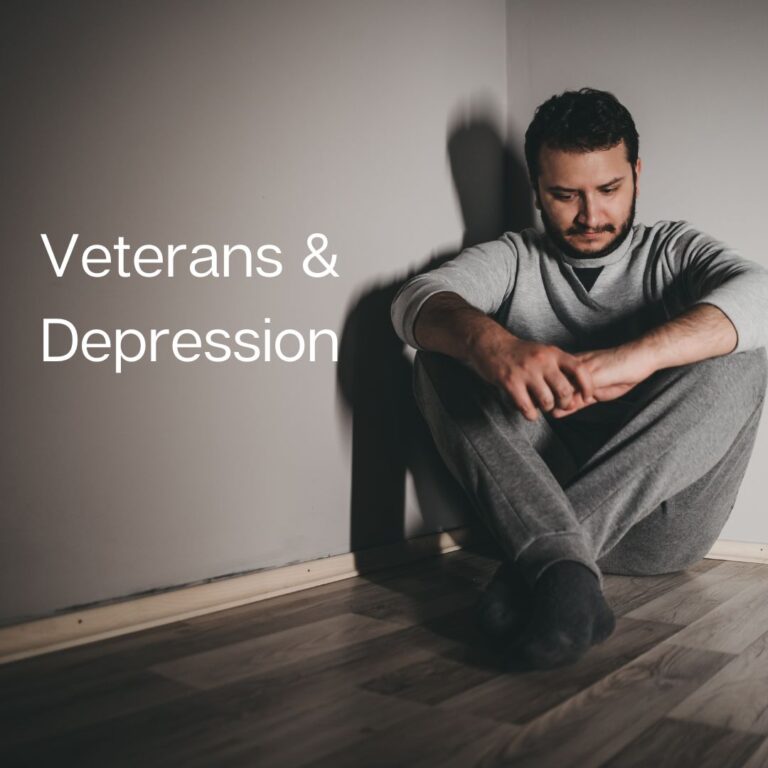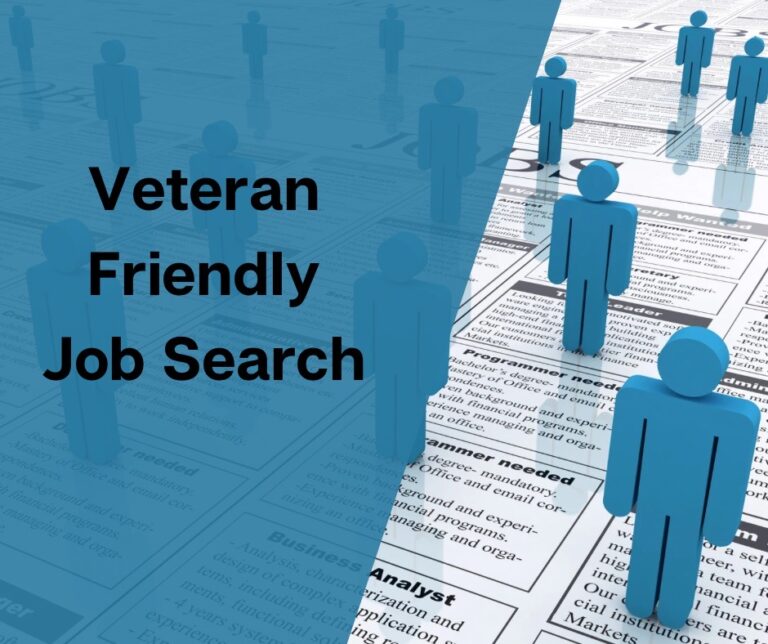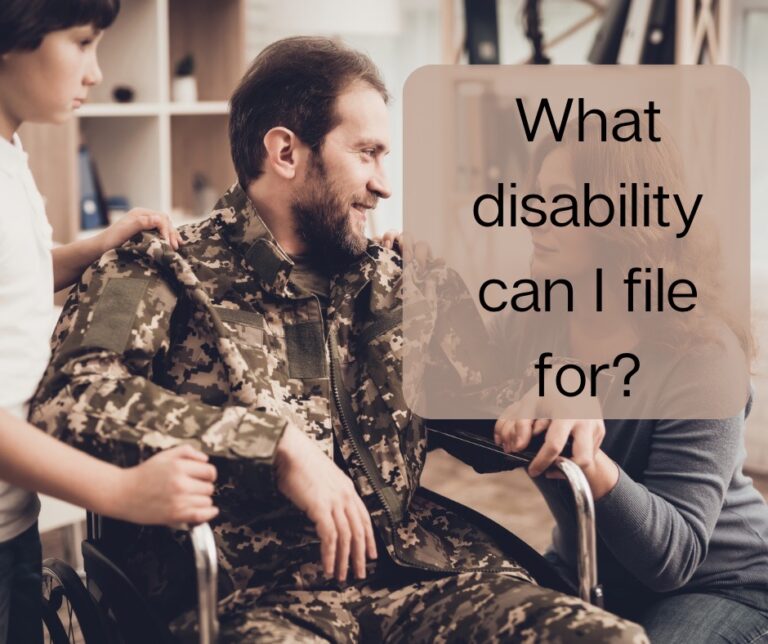Funding Your Future: A Guide to GI Bill Benefits and FAFSA
We posted about the GI Bill vs. FAFSA a couple of years ago, but it is a good topic to revisit for those who are just getting ready to start school or go back to work on their degree.
Are FAFSA and the GI Bill compatible? What exactly is FAFSA? Is filing a FAFSA necessary to access the GI Bill? These are common inquiries from veterans utilizing the GI Bill. While the VA webpage has improved the process of initiating and managing the GI Bill for veterans, there remains considerable confusion and misinformation surrounding this valuable benefit.
The FAFSA
Let’s start with the FAFSA, which stands for the Free Application for Federal Student Aid. It’s the largest source of financial aid, granting access to federal grants like the Pell Grant, work-study programs, and student loans—all through a single application. Additionally, many states and universities use the FAFSA to determine eligibility for state or school-level aid. Some private providers also rely on it to assess aid criteria. Remember, filling out and submitting the FAFSA is essential for federal student aid. However, the GI Bill operates differently—you don’t need to complete the FAFSA to utilize it.
Why Fill Out the FAFSA?
So, you have your Bachelor Degree paid for by your GI Bill and even a living stipend because you are on the Post 9/11 GI Bill. If you are getting your education paid for already, why bother filling out the FAFSA?
College expenses extend beyond tuition, encompassing costs like books, computer access, lab fees, and athletic expenses. Some students even fund study abroad opportunities through additional scholarships obtained by completing the FAFSA.
Furthermore, completing the FAFSA offers significant advantages. Veterans receiving the GI Bill may still qualify for additional scholarships or grants based on their financial situation. Remember that federal, state, and institutional scholarships often require FAFSA completion for eligibility.
Additionally, many external scholarships and grants (beyond federal or state programs) also mandate FAFSA submission. Scholarship sponsors seek deserving students and use the FAFSA to ensure they select the right recipients.
Moreover, most students are eligible for some form of federal aid—whether it’s grants, low-interest federal student loans, or work-study opportunities. To qualify for work-study, which not only provides income from part-time work but also enhances resumes, veterans must have completed the FAFSA.
Military and Veteran Aid
Service members, veterans, and their dependents have access to various scholarship and grant opportunities. If a student isn’t eligible for the Pell Grant and their parent or guardian died due to military service in Iraq or Afghanistan after September 11, 2001, they may qualify for the Iraq and Afghanistan Service Grant. The maximum amount mirrors that of the Pell Grant.
Additionally, veteran service organizations like Disabled American Veterans, Paralyzed Veterans of America, VFW, and American Legion offer annual scholarships to active-duty military personnel, veterans, and their families.
When Can I Fill Out the FAFSA
The FAFSA is open now.
Many federal and state grants operate on a first-come, first-served basis. Completing the FAFSA early increases veterans’ chances of receiving federal, state, or institutional grants they qualify for. Additionally, a significant percentage of students are eligible for some form of assistance.
Filling out the FAFSA is quick and straightforward—it’s free, as the name suggests. In truth, there are compelling reasons to complete the form, and no valid reasons not to. You can access the FAFSA application here.
As always, if you have any questions or comments please feel free to leave them in the comment section below or email them to info@nwavet.org







